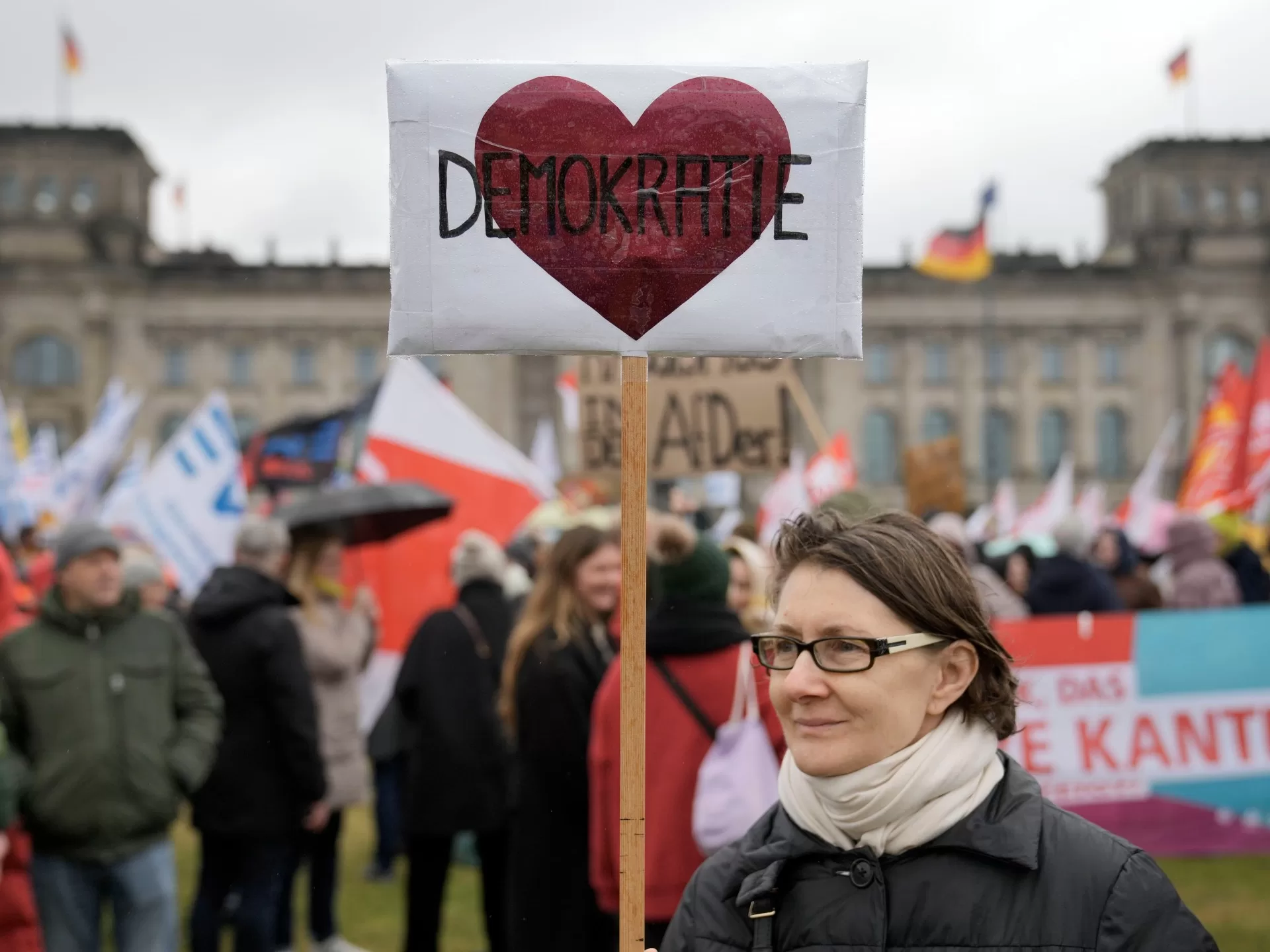Approximately 150,000 people took to the streets of the capital Berlin on Saturday, police said.
Similar protests were also taking place in cities including Dresden and Hanover, in a sign of growing opposition to the far-right Alternative for Germany (AfD) party.
On Saturday, Berlin police said people were still flocking to the Reichstag parliament building, where protesters gathered under the slogan “We are the Firewall” to protest against right-wing extremism and to show support for democracy.
“Whether in Eisenach, Homburg or Berlin: in small and large cities across the country, many citizens are coming together to demonstrate against forgetting, against hatred and hate speech,” Chancellor Olaf Scholz wrote on the social media platform X.
He said the protests were “a strong sign in favour of democracy and our constitution”.
The AfD’s success has stoked concern among Germany’s mainstream parties, who fear it could sweep three state elections in eastern Germany in September, even though recent polls have shown a slight decline in AfD support.
Earlier this week, a Forsa poll showed that backing for the AfD dropped below 20 percent for the first time since July, with voters citing nationwide demonstrations against the far right as the most important issue.
According to the poll, the AfD remains in second place behind the main opposition conservatives on 32 percent, while Scholz’s centre-left Social Democrats polled third at 15 percent.
The mass protests began following a report last month that two senior AfD members had attended a meeting to discuss plans for the mass deportation of citizens of foreign origin. The AfD has denied that the proposal represented party policy.
